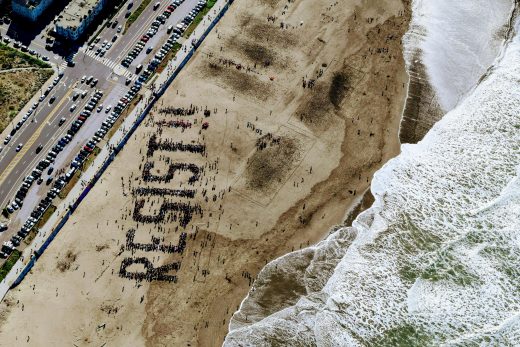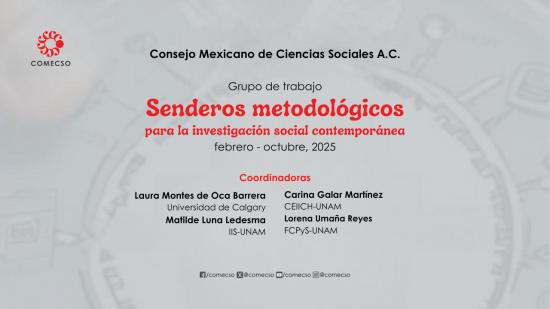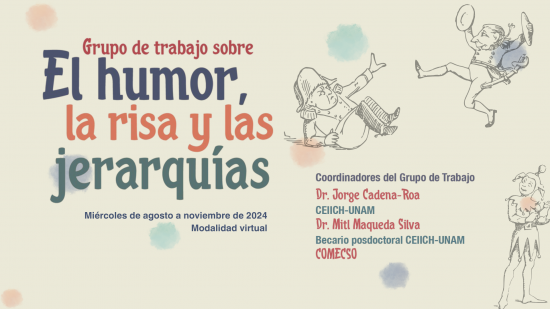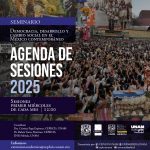Mexico’s new president shocks scientists with budget cuts and disparaging remarks
Jul.23, 2019
By Lizzie Wade
Lizzie is Science‘s Latin America correspondent, based in Mexico City.
The initially warm relations between Mexico’s academic community and the country’s new president, Andrés Manuel López Obrador, have decidedly cooled. A package of harsh austerity measures implemented on 3 May, has had a deep impact on federally funded laboratories and institutes; it includes a 30% cut to fuel for vehicles and office supplies and a 50% cut to international travel funds and payments to contract workers. Scientists say the cuts are a serious threat to the future of Mexican research.
López Obrador, who promised to support science and technology during his 2018 campaign, alarmed scientists with a proposal—later withdrawn—to personally approve researchers’ travel abroad, including to international conferences, which he called “tourism.” Meanwhile, many researchers question the new focus on social problems promoted by Elena Álvarez-Buylla, the controversial head of Mexico’s main research granting agency, the National Council of Science and Technology (Conacyt). And they fear the agency’s control over research funds and science policy will grow if reforms proposed by the president’s party are enacted.
“A general atmosphere of pessimism” has come to pervade Mexico’s scientific community, says José Luis Morán López, a physicist at the Institute for Scientific and Technological Research of San Luis Potosí (IPICYT) and president of the Mexican Academy of Sciences. “Science has never been very well supported in Mexico,” adds biophysicist Marcia Hiriart Urdanivia of the National Autonomous University of Mexico (UNAM) here. But the current situation “could be fatal.”
The austerity measures hitting science are part of a broader effort to target what López Obrador has called Mexico’s “golden bureaucracy”—public servants who use government funds to lead lives of luxury. López Obrador has slashed his own salary and sold the presidential plane in favor of flying commercial. Mexico can’t have “a rich government with a poor people,” he wrote in a memorandum announcing the cuts. The austerity measures followed a round of cuts in this year’s budget, announced in December 2018, in which Conacyt lost about 12% of the funds it administers. (The budget for science, technology, and innovation across all federal agencies went up slightly.)
Many scientists want to see corruption tackled and supported López Obrador’s landslide election a year ago. But although the president’s approval rating hovers at about 70% nationwide, he has profoundly disappointed many researchers. “The scientific community wants to be part of the change and the transformation that Mexico needs,” says Fernando Fabián Rosales Ortega, an astronomer at the National Institute for Astrophysics, Optics and Electronics (INAOE) in Tonantzintla. “But to do that, we need resources.”
INAOE has fired 20 experienced support staff and cut funds for travel, including to its own telescopes and observatories, Rosales Ortega says. Other federally funded researchers, from ecologists to geneticists, told Science about restrictions on electricity use, travel to conferences, health insurance, and office supplies. The cuts were implemented without regard to laboratories’ unique needs, they say. The electricity restrictions, for example, make it difficult for IPICYT to operate its supercomputer. But, “We can’t turn it off overnight,” Morán López says. Dwindling support will likely make Mexican researchers more dependent on foreign grants and could drive more of them abroad, many scientists say.
Álvarez-Buylla, an evolutionary developmental biologist with a focus on plants, says the austerity measures are not meant to hamper scientists’ work; they address inefficiencies in the system and privileges such as bonuses awarded to the current and former heads of research institutes. “In no way is travel necessary to perform substantial research work prohibited,” she says. But she questions whether the federally funded research centers need a fleet of 1000 vehicles. Álvarez-Buylla says Conacyt will issue a statement clarifying how the austerity measures apply, or don’t, to working scientists.
The austerity plan initially included a provision that required all public servants, including scientists at federally funded labs, to get the president’s approval for trips abroad. “How is the president of the country supposed to sign your permit to travel to a conference?” asks UNAM biologist and philosopher of science Edna Suárez-Díaz. “I swear, I thought it was fake news.” An online petitionagainst the plan’s effect on researchers, organized by Suárez-Díaz, drew more than 7000 signatures the first day it was posted online; just 3 days later, Conacyt clarified the requirement would apply only to high-level managers and bureaucrats, not scientists. Álvarez-Buylla says this was always the case. “Everything was clear from the beginning,” she says, and there was no need for panic.
Researchers also feel stung by López Obrador’s seeming disdain for their work. During one of his lengthy morning press conferences, he said the travel approval was aimed at “political tourism” by scientists flying first class and said he’d rather support the mobility and education of Tarahumara students, referring to an Indigenous group in Chihuahua. “We’re not going back to those excesses, even when it’s about scientists.” He has also described a corrupt “mafia” within the scientific community that allegedly exploited government funds. Álvarez-Buylla says these comments were mainly in reference to high-level bureaucrats who worked at Conacyt in past administrations.
The cuts and negative rhetoric inspired nearly five dozen researchers, under the moniker ProCienciaMX, to write an open letter denying the corruption charges, denouncing the “lack of trust,” and calling for increased transparency and support for science. The letter, also posted on Change.org, has gathered nearly 13,000 signatures.
Some scientists were already wary of Álvarez-Buylla because of her well-known activism against transgenic maize. She has announced that Conacyt will now award grants that target specific social problems, including watershed protection and food sovereignty with a focus on native crops. Álvarez-Buylla has not yet elaborated on the selection criteria for those grants but says the process will be “rigorous.” The aim is to “break down barriers in access to knowledge so that all Mexicans can benefit from science and technology,” she says.
Researchers also say it is unusual that Conacyt has not yet opened a call for basic science grants this year. But Álvarez-Buylla points out that Conacyt has already funded nearly 500 projects that were rated highly but not funded by the last administration, and says the call for new basic research grant applications will open “in the coming weeks,” with funding totaling 500 million pesos ($26 million).
Meanwhile, Senator Ana Lilia Rivera, from the president’s party, has introduced a bill that would eliminate 10 other science advisory bodies and put the vast majority of research funds and science policy responsibilities in Conacyt’s hands, a change critics worry would allow Álvarez-Buylla to make unilateral decisions and cut off funds for areas she doesn’t personally support. “Science is very broad, and there are many of us that don’t fit in what she has classified as priorities,” says Sabino Chávez Cerda, an optical physicist at INAOE. Álvarez-Buylla says physics and math grant proposals—the fields scientists fret about most—made up 26% of the projects already funded this year. “No field of knowledge is excluded” from Conacyt support, she says. Debate and a vote on the reform bill are expected later this year.
Some researchers derive a measure of hope from the new administration’s apparent retreat on the foreign travel issue. “It’s a government that is capable of correction,” Suárez-Díaz says. But even a few months or years of restrictions could inflict long-term damage on Mexican science, Chávez Cerda says. “If we don’t turn it around soon, the ship will start to sink,” he says.
[Texto publicado en Latin America]
Te puede interesar

Publicaciones del COMECSO
Roberto Holguín Carrillo - Ene 08, 2025Este espacio reúne la gran mayoría de la producción editorial de nuestra asociación. A lo largo de casi cinco décadas,…

The Many Impacts of Social Movements
Laura Gutiérrez - Feb 13, 2025The Many Impacts of Social Movements: Fifty Years after William Gamson’s The Strategy of Social Protest CBSM Mini-Conference at Northwestern…

Convocatoria a solicitar sede del X Congreso Nacional de Ciencias Sociales
Laura Gutiérrez - Feb 12, 2025Con el objeto de presentar a la comunidad académica los resultados de investigación en Ciencias Sociales y contribuir a la…

Grupo de Trabajo sobre Gobernanza
comecso - Feb 12, 2025Grupo de Trabajo sobre Gobernanza * Coords. Eliana Arancibia Gutiérrez y Carlos Chávez Becker OBJETIVOS ESPECÍFICOS Articular a especialistas sobre…









